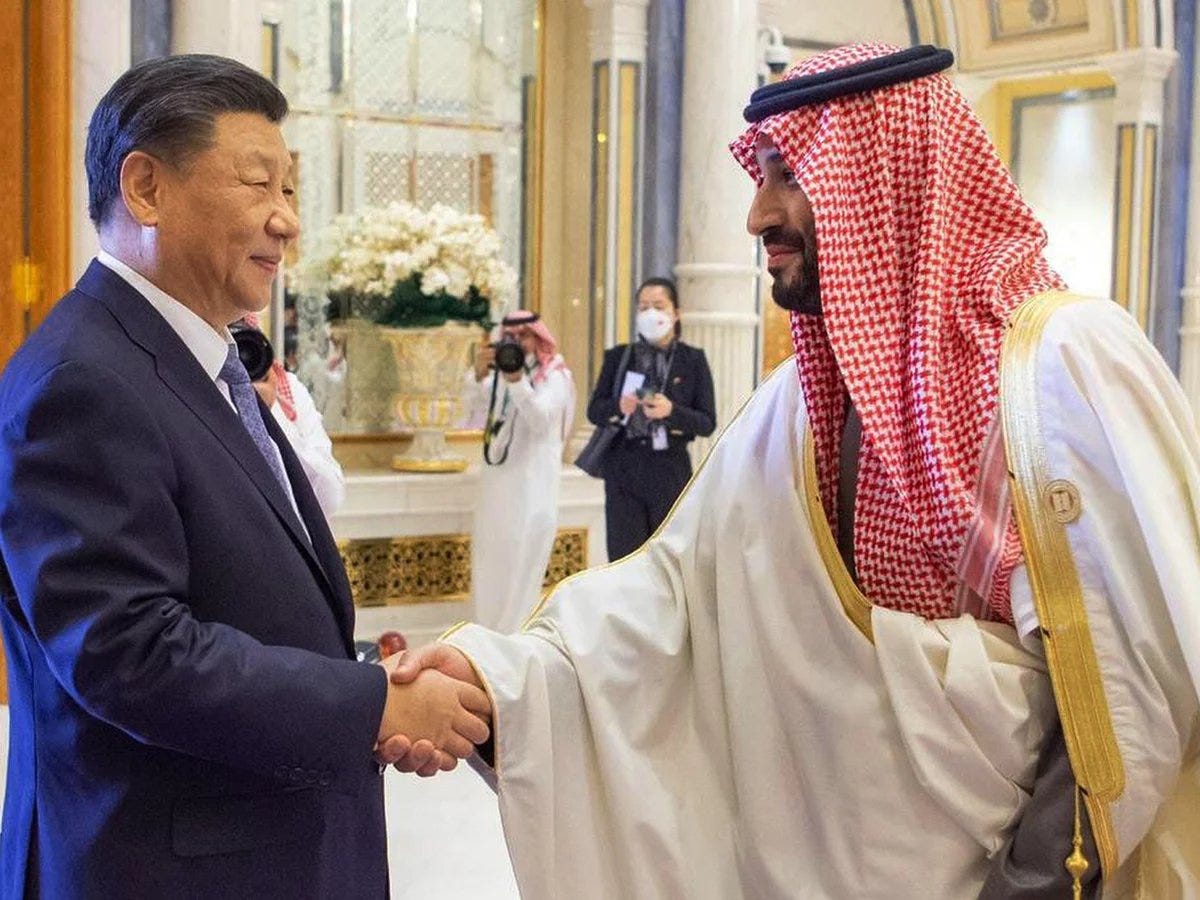Greetings from Jerusalem,
In the last three days, an Iranian delegation led by President Ebrahim Raisi visited Beijing and met with Chinese leader Xi Jinping. I will cover Chinese pundits’ analyses in the next issue of Discourse Power, so make sure to subscribe.
Meanwhile, I urge you to carefully read the joint statement issued by China and Iran today, which is a callback to the joint statement issued by China and Russia this time last year, just before Xi's "best friend" invaded a sovereign country.
***
For today’s issue, I am thrilled to share the synopsis and policy recommendations from a new report I wrote for the Atlantic Council's Global China Hub about China’s new security architecture for the Middle East (their name, not mine).
I'd be grateful if you could share the report with other well-informed colleagues and friends in your circles. By all means, feel free to drop me a message with your comments and feedback by replying to this mail.
Thank you for reading,
Tuvia
Full throttle in neutral: China’s new security architecture for the Middle East
by Tuvia Gering
This report addresses two widely held beliefs about the nature of China’s engagement in the Middle East and North Africa (MENA) that ought to be revisited in light of notable developments.
First, while it is widely assumed that Beijing’s interests in the region are limited to energy security and economic ties, this report will show how cooperation has expanded in recent years across the board.
Indeed, China has been fortifying its strategic ties and expanding its cooperation by heavily investing in local Belt and Road Initiative (BRI) projects, as well as the infrastructure and technologies of the future. In doing so, it seeks to further integrate each nation’s development strategy with its own.
Second, this report will review the assumption that there is no substitute for the United States’ security and diplomatic dominance in the region. It will describe how China currently provides limited security alternatives that directly and indirectly undermine US dominance, even without displacing it.
Moreover, it will illustrate how China’s expanding presence has resulted in a firmer determination to get more involved in regional security and politics, most notably through Xi Jinping’s Global Security Initiative and New Security Architecture for the Middle East.
The report will begin by providing an up-to-date and comprehensive analysis of China’s increased engagement and increased sense of urgency in the Middle East.
The discussion will then turn to internal Chinese debates about stepping up security and political involvement, highlighting a shared belief among Chinese MENA scholars that these measures are necessary.
Using the Israeli-Palestinian conflict and Gulf security as case studies, it reveals the stark disparity between Beijing’s words and deeds. Furthermore, it outlines what the future Chinese strategy might entail, and why its current form does a disservice to its stated objectives of regional peace and security.
Nevertheless, and even though China currently lacks the capacity and will to replace America’s long-established integrated deterrence and alliance networks, its new initiatives should not be overlooked. Real power is steadily catching up to the willpower to undercut US hegemony, posing challenges to the United States MENA approach and to its regional allies and partners.
The article concludes with the following key recommendations for US policymakers.
Empower US allies and partners to make informed decisions regarding Chinese alternatives and promote risk management while limiting any adverse effects on US strategic priorities in the Middle East and their own national interests.
Promote the agency of regional partners and allies by encouraging them to clarify to Beijing that they will not participate in Chinese initiatives that compromise the US-led security architecture essential to the region’s peace and stability.
Allow for the possibility of China and the United States working independently in the region for its benefit, rather than looking for US allies and partners to reject Chinese development options.
Broaden the conversation about US engagement beyond security, and match it with transparency and public exposure to dispel false narratives about US withdrawal or a purported sole focus on security affairs.
Click here to read the full report.
Playing in the Background
Discourse Power is written by Tuvia Gering, a researcher at the Diane and Guilford Glazer Foundation Israel-China Policy Center at the Institute for National Security Studies (INSS), a non-resident fellow at the Atlantic Council’s Global China Hub, and a Tikvah Fund’s Krauthammer Fellow. Any views expressed in this newsletter, as well as any errors, are solely those of the author. Follow Tuvia on Twitter @GeringTuvia



Bravo!
"Anti-missile ships”. Typo?